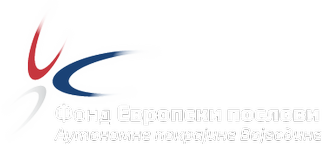"Citizens, equality, rights and values" (CERV)
Budget:
The total budget of the program is 1.5 billion euros
Duration of the program:
1. January 2021 – December 31, 2027.
Web page of the program:
PROGRAM DESCRIPTION
The European Union program "Citizens, Equality, Rights and Values" (Citizens, Equality, Rights and Values - CERV) is the largest program so far intended to promote and protect the values of the Union: democracy, the rule of law, fundamental rights, transparency and good governance, and thus aims to strengthen democracy in Europe and raise citizens' awareness of the rights and values contained in the fundamental Treaties and the EU Charter on Fundamental Rights, providing financial support to the non-profit sector in the promotion of those rights and common values. It provides the greatest support at the EU level, first of all, to civil society organizations, but also to local self-government units, educational, cultural and scientific institutions.
OBJECTIVES OF THE PROGRAM
The CERV program has four pillars:
Equality, rights and gender equality - promoting rights, non-discrimination, equality (including gender equality) and promoting the introduction of gender issues and non-discrimination;
Engagement and participation of citizens – promoting citizen engagement and participation in the democratic life of the Union, exchanges between citizens of different member states and raising awareness of common European history;
Daphne - fights against violence, including gender-based violence and violence against children;
Union values - protection and promotion of Union values
PROGRAM STRUCTURE
The program consists of 4 thematic chapters, Union Values strand) - available exclusively to member countries; Equality, Rights and Gender Equality (Equality, Rights and Gender Equality strand); Involvement and participation of citizens (Citizens engagement and participation strand); Dafne (Daphne strand)
COUNTRIES PARTICIPATING IN THE PROGRAM
Local and regional self-government units; Civil society organizations (associations, alliances, foundations, endowments, think-thank organizations, umbrella organizations, etc.); Educational, scientific and cultural institutions, trade unions - institutes, faculties, museums, cultural institutions; International organizations; Public authorities
INSTITUTIONS THAT CAN PARTICIPATE IN THE PROGRAM
Local and regional self-government units; Civil society organizations (associations, alliances, foundations, endowments, think-thank organizations, umbrella organizations, etc.); Educational, scientific and cultural institutions, trade unions - institutes, faculties, museums, cultural institutions; International organizations; Public authorities
COMPETENT BODIES FOR PROGRAM IMPLEMENTATION
The European Commission programmatically and financially manages the program:
- Directorate for Justice and Consumers (DG JUST)
- Education and Culture Executive Agency (EACEA)
These bodies implement the entire Program and cooperate with the national contact points of the countries participating in the Program.
PROGRAM CONTACT POINTS IN SERBIA
Contact e-mail: sanja.atanaskovic@minljmpdd.gov.rs

